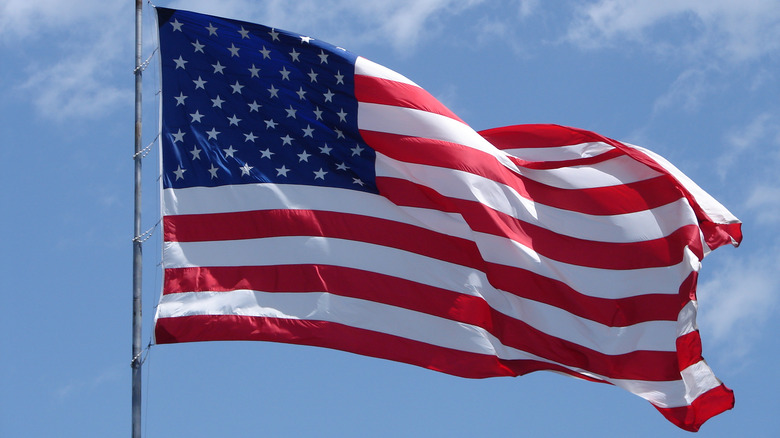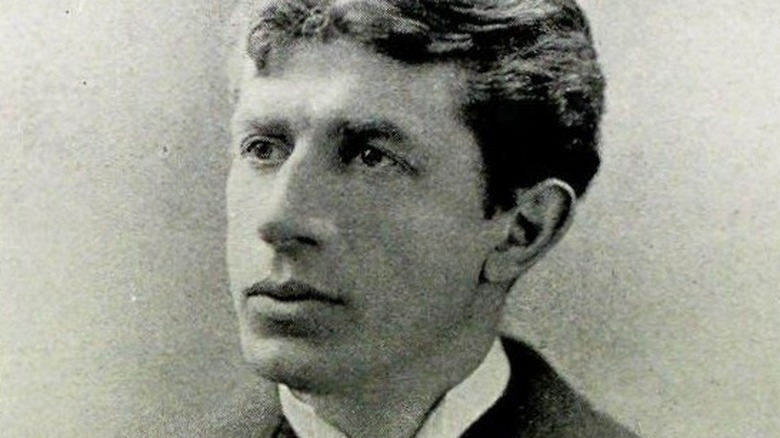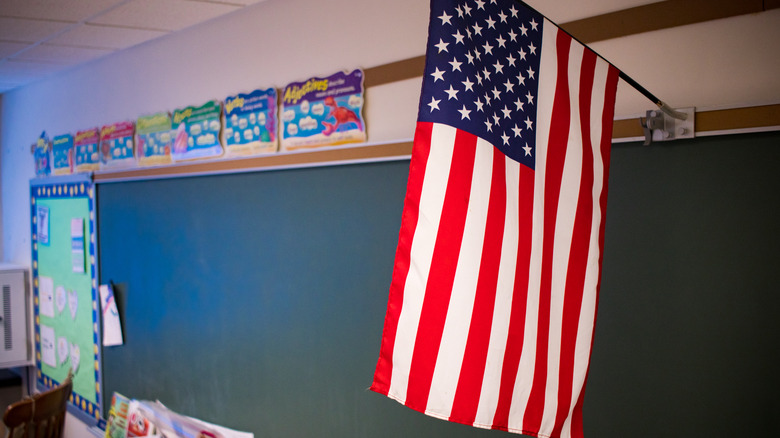Who Wrote The Pledge Of Allegiance?
For over a century, according to Smithsonian Magazine, American schoolchildren have been rising up from their seats every morning to perform a ritual. They place a hand over their heart and recite a bit of verse that most American adults know by heart, beginning, "I pledge allegiance to the flag of the United States of America ..." The addition of the two-word phrase, "under God," was made a few decades after the practice got going.
This is one of those examples of uniquely American culture that, like playing the National Anthem before a sporting match, is at once an entrenched and often beloved form of institutionalized patriotism that other countries shake their heads at, as The Week notes. The Pledge of Allegiance, as we know it, was written in 1892, and the man who put pen to paper knocked it out in a couple of hours, although he was building on earlier work.
A flag in every classroom?
Francis Bellamy was, according to the Cato Institute, at one time a Baptist preacher who was forced out of his position due to his unabashedly socialist views, such as those expressed in a sermon titled "Jesus the Socialist." Meanwhile, another Baptist, Daniel Sharp Ford, was publishing a magazine, "Youth's Companion," according to Civil War Baptists. In 1888 Ford, via his magazine, launched a plan to get a flag into every classroom in every American school and, spurred on by the 400th anniversary of Columbus' arrival in the New World, ramped up his efforts to realize that goal.
Ford hired Bellamy to compose a bit of verse to be learned by the American schoolchildren in whose classrooms the American flag would stand. In a couple of hours, according to Smithsonian Magazine, Bellamy had knocked out a bit of verse: "I pledge allegiance to my Flag and to the Republic for which it stands, one nation, indivisible, with liberty and justice for all." In 1923 the words "the flag of the United States of America" replaced "my flag" (per US History.org). "Under God" was added in 1954, distinguishing the United States from "Godless Communism" during the days of the Red Scare, writes Smithsonian. Bellamy, being an absolute believer in the separation of church and state, according to Civil War Baptists, deliberately avoided any mention of God in his prose.
The Pledge's Controversial Place In American Society
In the main, American schoolchildren and governmental bodies have recited the Pledge, whether at school or during a ceremony, before getting down to the day's business, for well over a century. Some people are now questioning that, however.
"The Pledge of Allegiance is not normal. It feels normal to Americans ... But [it] too isn't normal — at least, not by global standards (India is a rare exception), and especially not for countries with even a pretense of democracy," writes Bonnie Kristian for The Week. According to The Hill, just three states have no policy regarding reciting the Pledge: Wyoming, Vermont, and Hawaii. The "Under God" phrasing has been the stuff of court battles, with one making it to the Supreme Court in 2004. The court decided the plaintiff didn't have standing in the case and so no ruling was issued, although three justices said the words didn't violate the separation of church and state (via Pew Research). (Justice Sandra Day O'Connor called it "ceremonial deism," writes Smithsonian.)
As for Bellamy, he moved from Christian socialism to a career in advertising. He published a book, titled "Effective Magazine Advertising," in 1909. He died in 1931, age 76 (per Find a Grave).


